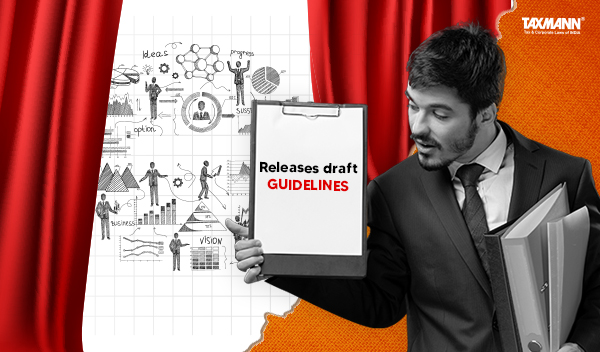RBI Releases Draft Guidelines on ‘Prudential Framework for Income Recognition, Asset Classification and Provisioning’
- Blog|News|FEMA & Banking|
- 2 Min Read
- By Taxmann
- |
- Last Updated on 6 May, 2024

Press Release No. 2024-2025/244; Dated: 03.05.2024
RBI has released draft guidelines on ‘Prudential Framework for Income Recognition, Asset Classification and provisioning pertaining to Advances – Projects under Implementation’. These guidelines shall apply to Scheduled Commercial Banks (SCBs), Non-Banking Finance Companies (NBFCs), Primary (Urban) Cooperative Banks and All India Financial Institutions (AIFIs).
RBI emphasized that for any project, all mandatory prerequisites must be in place before financial closure. An indicative list of such pre-requisites includes availability of encumbrance-free land and/or right of way, environmental clearance, legal clearance etc., as applicable for the project.
RBI highlighted that in projects financed under consortium arrangements, where the aggregate exposure of the participant lenders to the project is up to Rs 1,500 crores, no individual lender shall have an exposure which is less than 10% of the aggregate exposure. For projects where the aggregate exposure of lenders is more than Rs 1,500 crores, this individual exposure floor shall be 5% or Rs 150 crores, whichever is higher.
Further, lenders wishing to engage in project financing must have a board-approved policy for the resolution of stress in projects on the occurrence of a credit event. The lenders are expected to continuously monitor the build-up of stress in the project and initiate a resolution plan well in advance.
Also, a positive net present value (NPV) is a prerequisite for any Project financed by lenders. Any subsequent diminution in NPV during the construction phase, either due to changes in projected cash flows, project life-period or any other relevant factor which may lead to credit impairment must be construed as a credit event. Accordingly, lenders must get the project NPV independently re-evaluated every year.
Click Here To Read The Full Press Release
Disclaimer: The content/information published on the website is only for general information of the user and shall not be construed as legal advice. While the Taxmann has exercised reasonable efforts to ensure the veracity of information/content published, Taxmann shall be under no liability in any manner whatsoever for incorrect information, if any.

Taxmann Publications has a dedicated in-house Research & Editorial Team. This team consists of a team of Chartered Accountants, Company Secretaries, and Lawyers. This team works under the guidance and supervision of editor-in-chief Mr Rakesh Bhargava.
The Research and Editorial Team is responsible for developing reliable and accurate content for the readers. The team follows the six-sigma approach to achieve the benchmark of zero error in its publications and research platforms. The team ensures that the following publication guidelines are thoroughly followed while developing the content:
- The statutory material is obtained only from the authorized and reliable sources
- All the latest developments in the judicial and legislative fields are covered
- Prepare the analytical write-ups on current, controversial, and important issues to help the readers to understand the concept and its implications
- Every content published by Taxmann is complete, accurate and lucid
- All evidence-based statements are supported with proper reference to Section, Circular No., Notification No. or citations
- The golden rules of grammar, style and consistency are thoroughly followed
- Font and size that’s easy to read and remain consistent across all imprint and digital publications are applied



 CA | CS | CMA
CA | CS | CMA
